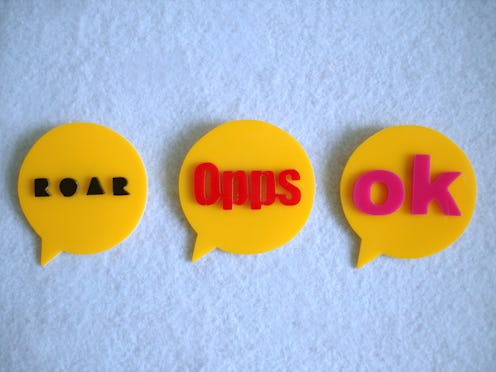
A lot of the things that come out of our mouths aren't actually words; they're just noises. But when we use noises like "ugh" and "err" enough to express different sentiments, they take on meaning and even begin to sound like English. Well, English isn't the only language supplemented by these vocal quirks. Quartz's "Words that aren't words" video exposes some common "grunts, sighs and other untranslatable exclamations" in different countries from the perspectives of people who live there. A lot of them might sound funny to us, but many of the sounds Americans use are probably laughable to foreigners.
Linguists call communication through nonverbal noises "sound symbolism." The different types of sound symbolism include onomatopoeia, the imitation of non-vocal sounds; clustering, the use of specific sounds in words to convey something about those words' meanings (for example, "bang," "beat," and other words indicating physical force start with "b"); iconism, the use of sounds to distinguish meanings of similar words (the way "stamp" sounds more forceful than "step"); phenomimes, sounds that convey external events; and psychomimes, which convey psychological states. Most of the sounds below fall under the last category.
Now, if you visit one of these countries, you can blend in not just by learning the language but also through mastery of the natives' nonverbal tics.
"Och" means "oh" in Scotland.
"Ech" is a "sigh of resignation" in Poland.
"Ah (ah)" expresses agreement in Taiwan.
"Nu" means "well, I sort of agree with you, but..." in Russia.
"Boh" means "I don't know" in Italy.
"Shì wo" means "is, but maybe isn't" in Taiwan and Mandarin.
"Ay" expresses surprise or pain in Spanish.
"Ts" means "nope" in Italy.
"Nhé" goes at the end of a sentence to emphasize your point in Vietnam.
"Bof" means "I don't care" in France.
"Chh" is a substitute for swear words in Spanish.
Sharpen your extra-linguistic skills by watching the full video below: